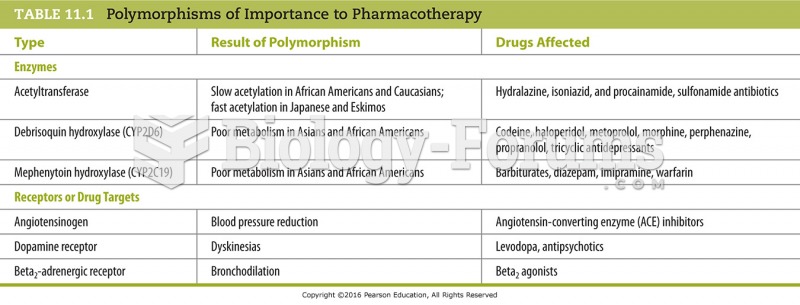|
|
|
The most common childhood diseases include croup, chickenpox, ear infections, flu, pneumonia, ringworm, respiratory syncytial virus, scabies, head lice, and asthma.
Vaccines prevent between 2.5 and 4 million deaths every year.
Ether was used widely for surgeries but became less popular because of its flammability and its tendency to cause vomiting. In England, it was quickly replaced by chloroform, but this agent caused many deaths and lost popularity.
People with high total cholesterol have about two times the risk for heart disease as people with ideal levels.
Children of people with alcoholism are more inclined to drink alcohol or use hard drugs. In fact, they are 400 times more likely to use hard drugs than those who do not have a family history of alcohol addiction.
 The functional structure of the peripheral nervous system. (A) Afferent or sensory neurons carry sen
The functional structure of the peripheral nervous system. (A) Afferent or sensory neurons carry sen
 Messenger RNA (mRNA) carries genetic information from the nucleus to the cytoplasm for protein synth
Messenger RNA (mRNA) carries genetic information from the nucleus to the cytoplasm for protein synth





